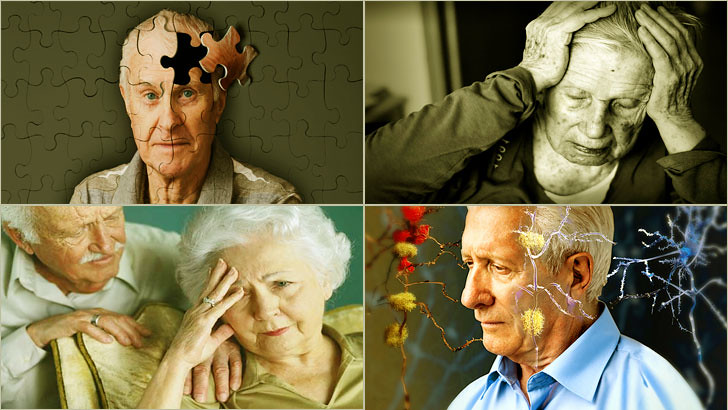SHARES

“I would see myself as more artistic and living in the moment. My stuff are everywhere. It’s normal to take an hour or two for me to get ready because I always forget where I left my belongings. Having said that, I often get very angry with myself. My work is messy and I cause a lot of trouble.
My husband and I would quarrel often. In front of him, I don’t see myself confident anymore. It hurts me when he said I got this from my mother. Recently, her dementia got worse. Sometimes, she forgets who am I, and even wander away from home!”
-Penny, 50, would worry a lot when she relates her forgetfulness to her mother’s dementia.
The Link Between Dementia and Personality Traits
Dementia is common in the elderly, WHO’s estimate is 5-8% among those over 65. This is a condition when two or more brain functions fail. For example, people with dementia may find it difficult to memorize new things, recall old memories, calculate, etc.
In this context, dementia also affects the part of brain that is responsible for inhibiting and controlling our action and behavior. As a result, people act directly from their emotions and energy level unknowingly. More often that not, you notice that their personalities exaggerate with dementia. For instance, people who are always kind become more gentle. Those who are more cautious with money may become paranoid.
Besides, the surrounding atmosphere affects how they feel and they tend to react in similar ways. On top of that, person with dementia do have a lot of intact old memories, especially emotional memories. Sometimes, harmless cue in daily activities can trigger a strong yet irrelevant emotional memory. They react quickly and believe it’s true. Many would struggle with frustration and shame knowing that their behaviors are inappropriate. But, it is even more painful for them to learn that they are losing their brain control over their emotions.
Personality Traits at Younger Age May Affect Your Risk for Dementia
Recent studies are showing a link between personality at young age with risk of developing dementia at an older age. Benjamin P. Chapman and his co-authors find out that people who are calm, matured and active are less likely to have dementia. On the contrary, people with higher level of neuroticism are more prone to dementia at later stage of life.
1. Calmness
Calmness means freedom from distressing feelings and emotions. This is directly in contrast with neuroticism (tendency to experience negative and stressful emotions). Bodily and mental stress raise the level of stress hormone circulating in our blood. If the person is under chronic stress, this confers a higher risk for dementia.
In this context, our personality is like a mask (persona-, “mask”) that we wear in the process of growing up and taking up social roles. We would identify ourselves with a set of values. These make us who we are, who we associate with, and how we carry out our roles. However, the process is painful. We often get internal conflict when our own set of values clash with one another and even with others. Times are very stressful we jeopardize our relationship or lose our sense of belonging to groups of people. It is a life long journey for us to find peace with ourselves and with others.
Similarly, people with lower socioeconomic status are more likely to have dementia too. Features of lower social and economic status includes financial stress, problem with housing, transportation, food, as well as exposure to crime.
2. Maturity
People who are reliable and responsible have less chance in developing dementia. This is part of the Big Five Personality under the category “conscientiousness”. As such, other qualities like goal orientation and good organizing skills also protect you from dementia. Having said so, lower socio-economic status despite strong attributes of maturity still puts you at higher risk for dementia. This may be partly because of the possibility that high conscientiousness may play a role in improving economic and social status.
3. Vigour
Having active lifestyle with healthy body weight reduce our likelihood for dementia. In addition, higher activity level can be as general as having a busier lifestyle. Likewise, an enthusiastic approach towards life also contribute to overall vigour. For instance, engagement in social activities, community causes, life events etc.
Conclusion
In short, studies are pointing towards a possible link between lower dementia rate and personality traits like calmness, maturity, and vigour. These personality traits may play certain roles in affecting life decision, habits, activity level, and socioeconomic statue. Yet, the cause-effect relationship is still not conclusive. This is especially true in the context of local culture with different social and economy structure that favors personality traits differently.
Find a GP/Family Doctor in Malaysia, on GetDoc
Find a GP/Family Doctor in Singapore, on GetDoc
References
- Benjamin PC, Alison Huang, Kelly Peters. Association between high school personality phenotype and dementia 54 years later in results from a national US sample. JAMA Psychiatry. 2019 Oct 16. doi: 10.1001/jamapsychiatry.2019.3120
- Batya SY. Do personality traits in teens indicate future dementia risk [Medscape]? WebMD LLC. 2019. [Available from: https://www.medscape.com/viewarticle/920122#vp_1; last updated on 2019 Oct 21; last accessed on 2020 Feb 4]
by Chang Xian
View all articles by Chang Xian.







